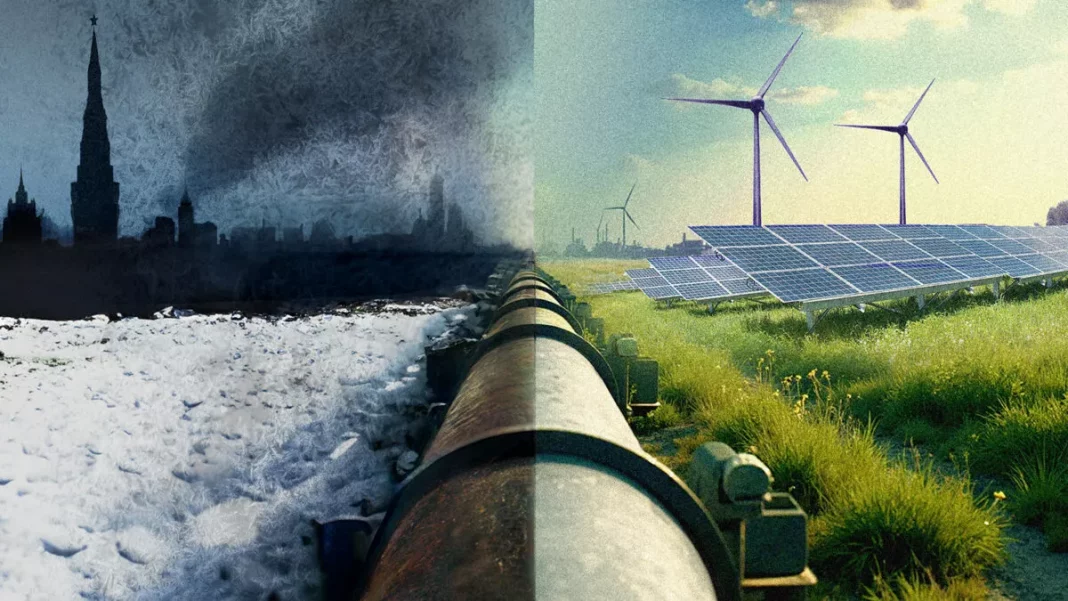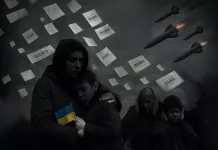By EUcsDisinfo
Winter is approaching and with it a new focus on those familiar Kremlin disinformation narratives about the EU’s energy supply and the folly of ‘anti-Russian’ sanctions.
The story has remained largely unchanged since Putin cut gas supplies to Europe back in spring 2022 with a demand to lift EU sanctions. According to the pro-Kremlin disinformation, Europeans are committing a massive act of self-harm – their economies are tanking because of the lack of Russian energy resources, while those sanctions have had a minimal effect on Russia itself, which is forging a bright new future and leaving its old EU customers in the dust.
EU on the brink of collapse?
Two years on – what has changed? Not so much, but there have been a few interesting tweaks to some familiar narratives. For example, back in 2022, the Kremlin’s propagandists painted an apocalyptic picture of an EU plunged into winter darkness due to a lack of Russian fuel, with its citizens freezing and civil unrest on the streets.
They forecast the overthrow of EU governments and even disintegration of the EU itself. Just like they forecasted the collapse of the EU during the COVID-19 pandemic. The Kremlin minions have been proven wrong time and again.
What actually happened to European gas prices?
Contrary to the Kremlin and Gazprom’s dreams of using sky-rocketing European gas prices for political blackmail, the below graph, by Trading Economics showing the price for European gas futures, illustrate that Moscow’s scare campaigns and market manipulation can be countered by decisive action coordinated at the EU level.

- 24 February 2022: The full-scale invasion of Ukraine.
- Russia reduces gas export to EU, trying to force the lifting of sanctions. Gas export almost halted.
From July-August 2022: Alternative gas providers to EU are sourced, while EU adopts regulation on reducing gas demand followed by emergency measures to reduce energy prices. - Nord Stream 1 & 2 sabotage on 26 September 2022: very short and limited impact, does not change the market trend.
What has changed?
This year it seems the propagandists have understood the message. No more endless forecasts of lights out and social unrest across the EU. Instead, a ruthless focus on Ukraine and predictions of misery there this winter after the sustained Russian missile and drone strike campaign against Ukrainian energy infrastructure. A campaign that, according to the UN, may “have violated foundational principles of international humanitarian law.”
Another difference this time is a noticeable decline in stories about Germany. Pro-Kremlin propagandists have been obsessed with the perceived collapse of the German economy as an indication of wider economic woes across the EU. This time, there appears to be fewer such claims. Predictions of Germany’s demise were premature and the economy is even forecast to pick up in 2025.
But old habits die hard: the ‘soon-to-come EU collapse’
Kremlin propaganda outlets in September 2024 quoted rather selectively the Draghi report from the European Commission that the EU might cease to exist due to the crippling economic impact of sanctions. According to the Kremlin propagandists, only the US stands to benefit, as an often-repeated disinformation narrative goes.
The red thread running through messaging in pro-Kremlin outlets since the launch of EU sanctions is how these sanctions are destroying the EU that is apparently ‘committing an energy suicide,’ while at the same time somehow benefitting Russia. The Kremlin propagandists insists that after all, everyone needs Russian gas and oil!
We are doing fine, but could you, EU, still reconsider the sanctions, please?
Another familiar Kremlin disinformation trope is that the sanctions just do not work, or at least not as they were intended to. According to this narrative, far from being a punishment, Russia is doing just fine without the EU.
As we have previously reported, the Moscow fantasises of creating a new world order – reshaping a ‘fairer future for the Global South’, and as a part of that, is busy striking deals with India on energy, and on nuclear cooperation with African countries, who see Moscow as a “reliable partner”. Nevertheless, the reality for the Kremlin might prove to be less rosy than the fantasies, as Russian pipe dreams in China suggest.
EU’s Green agenda is “barely disguised ‘Russophobia’”
Russian state and other pro-Kremlin outlets are eager to claim that EU has a ‘forced’ fondness for green policies, and what a fraud such polices apparently are.
The Russian state outlets operating in European languages claim that Germany was massaging its figures around methane emissions, which, according to the propagandists, may be 220 times higher than they should be.
In an orchestrated manner where narratives and wordings are copied across platforms and outlets, the renewable energy sources are widely mocked in the pro-Kremlin ecosystem, and dismissed as never-replacements for oil and gas. The EU, so the narrative goes, has made some bad choices. According to the propagandists, the EU’s Green agenda will be its undoing and the “russophobication” of its energy market entirely unsustainable.
Nevertheless, as we are slowly moving into winter, ordinary Russians living outside major city centres may end up thinking back to last year and remember the heating blackouts and outages in the midst of sub-zero temperatures, which they had to endure across Russia. They may be the ones contemplating protesting this year, and not the citizens of the EU.
By EUcsDisinfo





